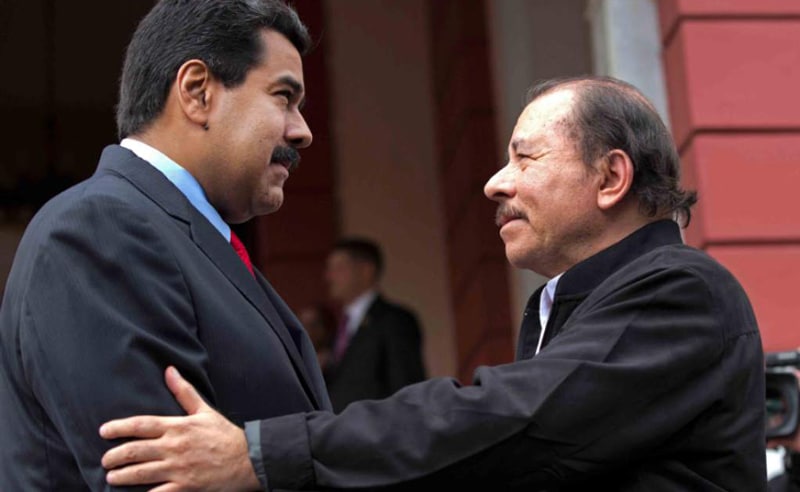RIO DE JANEIRO, BRAZIL – Venezuela and Nicaragua are among the countries registering the greatest democratic setbacks over the past 10 years worldwide, amassing major deterioration in the protection of civil liberties and ranking among the nations leading the expansion of authoritarianism, a report by the Freedom House think tank said on Wednesday, March 3rd.

The study also highlighted the deterioration of established democracies in recent years, including the United States, where the Donald Trump administration tested the system by removing inspectors general- officials tasked with monitoring potential abuses of power within the executive branch – and by punishing or firing officials who reported internal improprieties, and for trying to control or manipulate information on Covid-19.
“Authoritarian players became much bolder in 2020, a year in which major democracies reversed course, contributing to the 15th consecutive year of global freedoms setbacks,” concluded Freedom House’s annual report, which studies the health of civil liberties in individual countries on a year-by-year basis.
The report found that the number of countries categorized as “not free” last year reached its highest level since the process of democratic deterioration began in 2006, when the number of countries regressing in political and civil liberties outnumbered those improving.
The report lowered the assessments of 73 countries where 75% of the world’s population lives.
“Affected nations include not only authoritarian countries such as China, Belarus and Venezuela, but also troubled democracies such as the United States and India,” the study highlighted.
The list of countries that showed the greatest setbacks in political and civil liberties over the past ten years is topped by Mali (-39), Turkey (-31), Tanzania (-30) and the Central African Republic (-28), all of which were classified as non-free countries with the exception of Tanzania, which despite its drop in evaluation is still considered a partially free nation.
Venezuela (-28) ranked fifth, followed in sixth place by Nicaragua (-24), nations classified as not free in the world ranking.
The remaining top ten countries that fell were Bangladesh (-21), Burundi (-21), Hungary (-21) and Azerbaijan (-18).
The United States ranked much lower in the table and is still considered a free nation, but recorded an 11-point drop in its assessment.
The report noted that Venezuela’s decline in the liberties index over the past 15 years has been “steep,” with the South American nation registering a cumulative loss of 40 points during the period.
Many Venezuelans began to believe that the country could be on the threshold of a transitional stage to start regaining its democratic institutions in 2019, when US-backed opposition leader Juan Guaidó emerged as a potential threat to Nicolás Maduro’s regime, the report noted.
But 2020 saw the regime tighten its grip on the reins of power and its opponents continue to risk being victims of extrajudicial killings, enforced disappearances or arbitrary detentions, it added.
In Nicaragua, a new law against cybercrime dealt a blow to freedom of expression by imposing mandatory prison sentences for those who spread “false information” on the internet.
Nicaragua was also among a dozen countries whose leaders have tried to circumvent limits on governing terms in an attempt to cling to power, and when faced with the coronavirus, the Nicaraguan government refused to implement recommended measures to contain the pandemic, saying only that the virus did not pose a threat to the country, the study notes.
The pandemic had a crippling impact on civil liberties worldwide, and most countries with the strongest democratic institutions have conceded that such restrictions are both necessary and proportionate to contain the threat posed by the virus, the report said.
But a number of countries “have embraced inept and misinformed strategies, and dictators in countries such as Venezuela and Cambodia have used the crisis to crush the opposition and strengthen their grip on power,” it added.
Source: El Nuevo Herald

